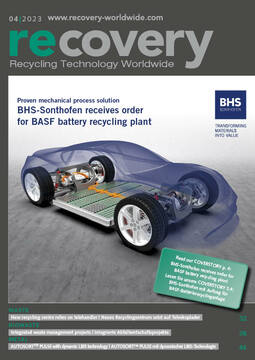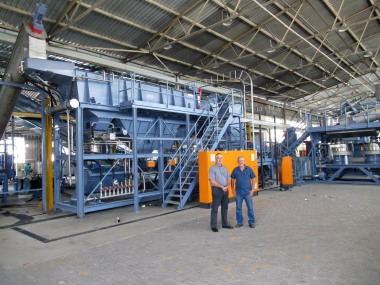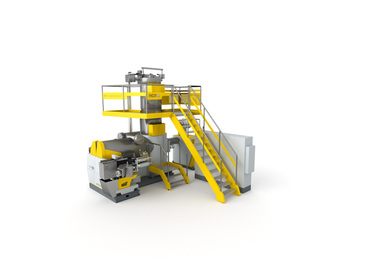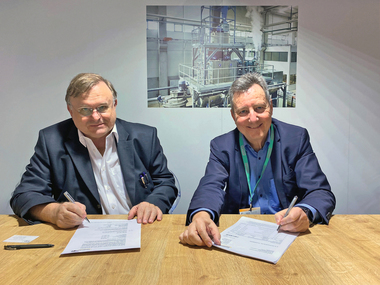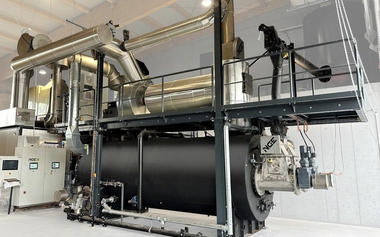Combating Nigeria‘s waste problem with plastics recycling technologies from NGR and education
In West Africa, they are ubiquitous: small plastic bags called water sachets provide millions of people with an affordable source of clean drinking water. Once the corner of the bag is torn and the water consumed, the sachets are often carelessly discarded resulting in pollution of the environment. However, with the help of Next Generation Recycling Machines GmbH‘s innovative recycling technologies, these used water bags can be recycled and reused for new high-quality packaging applications.
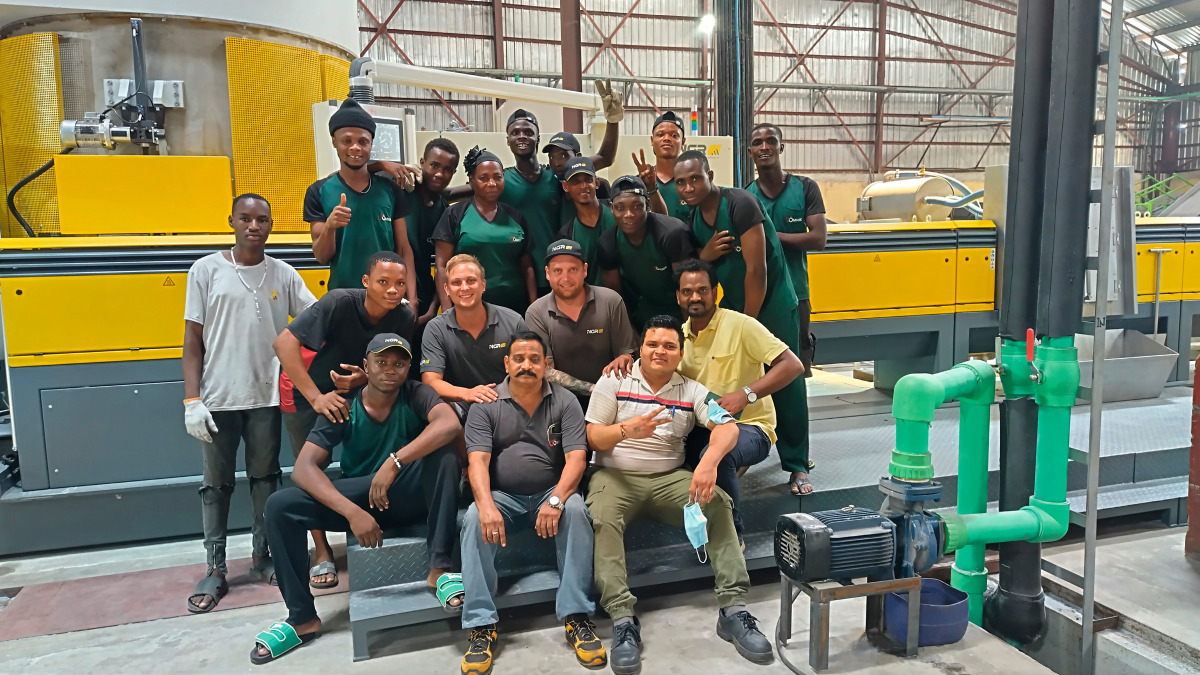 Andreas Himmelsberger (left in the middle) and Manuel Füreder (right in the middle) at the commissioning in Nigeria. Both are particularly proud to contribute to a #betterfuture with their daily work
Andreas Himmelsberger (left in the middle) and Manuel Füreder (right in the middle) at the commissioning in Nigeria. Both are particularly proud to contribute to a #betterfuture with their daily work
© NGR
As part of a pilot project, launched in Lagos, Nigeria‘s most populous city, to combat plastic pollution on-site, used water bags are processed and recycled. Using a network of kiosks, a dedicated app, and employed waste pickers, the sachets are collected and processed into post-consumer recyclate by Omnik Limited, a regional project partner. A cutter-compactor-extruder combination from the Feldkirchen machine manufacturer is used for this purpose. With gentle material treatment and minimized energy consumption, the C:GRAN is the optimal solution for such post-consumer challenges. The machine reliably processes moist to highly moist and contaminated input materials such as water bags into top quality granules for the highest demands.
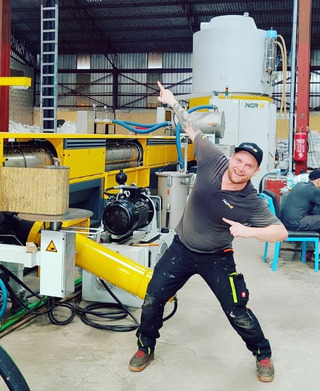 Joy over the successful commissioning
Joy over the successful commissioning
© NGR
In addition to recycling the sachets, raising awareness among residents and training local waste entrepreneurs is a crucial part of the project to create a sustainable and long-term solution in the region.
Gerhard Ohler, CEO of NGR, is proud that NGR‘s recycling technologies can make a significant contribution to solving the waste problem in West Africa: “Through Omnik’s recyling projects, the used water bags are being recycled, which would have otherwise ended up in the environment or in the landfill. This is a crucial step in addressing the waste problem in Africa and shows that technological developments can also efficiently keep post-consumer waste in circulation.”

